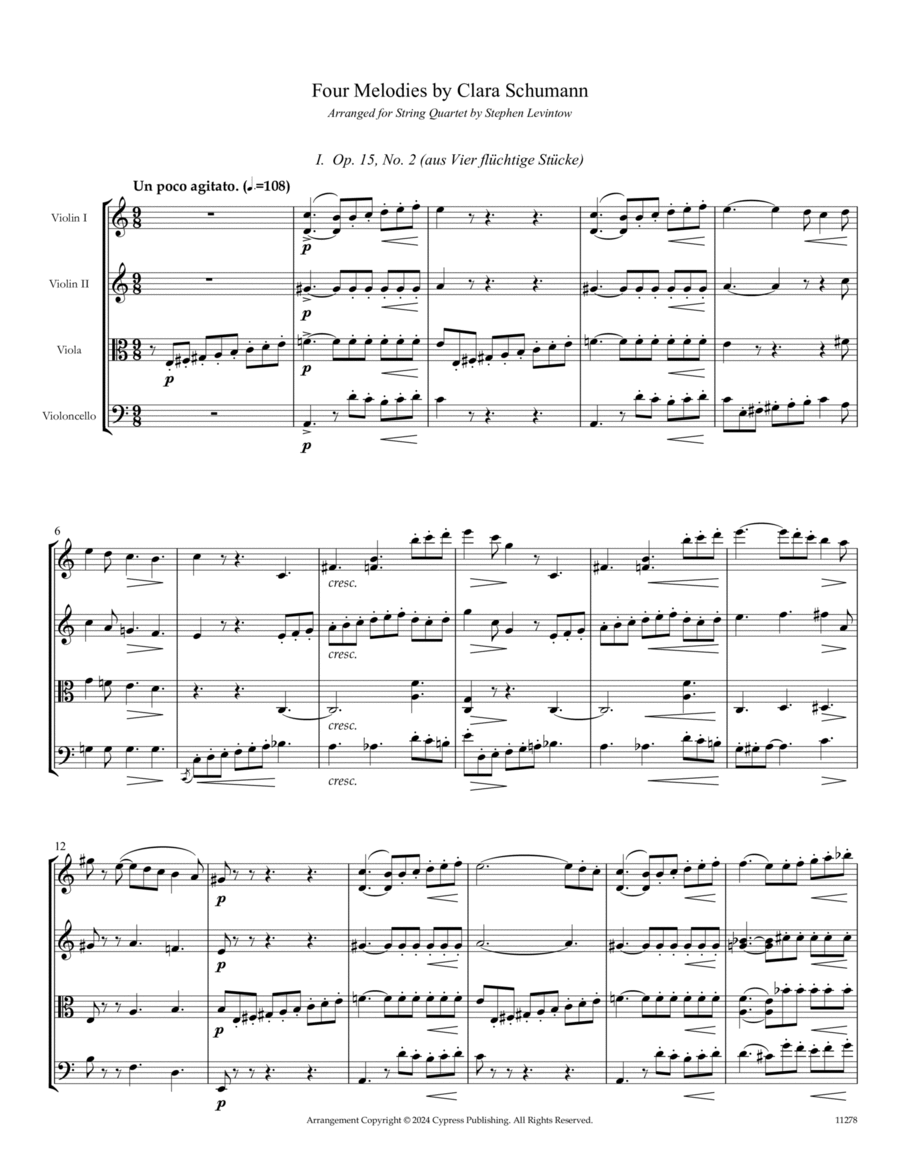String Quartet Cello,String Quartet,Viola,Violin - Digital Download SKU: A0.1511369 Composed by Clara Wieck-Schumann. Arranged by Stephen Levintow. 19th Century,Romantic Period. 32 pages. Cypress Publishing #1086543. Published by Cypress Publishing (A0.1511369). Appreciation for the quality and charm of Clara Schumanns music has increased in recent years as it has become better known. She was the daughter and prize pupil of the celebrated piano teacher Friedrich Wieck, and she toured internationally by her early teens. Wieck also taught Robert Schumann, but bitterly opposed the liaison of Robert and Clara, aware that it would cause him to lose control of her career and the income it generated. The two were able to marry only after a long court battle with Wieck.In the 40 years that Clara survived Robert, she composed very little, devoting her energy to performance, and to securing Roberts musical legacy. Nobody can blame her for this, especially as performing was a far more secure way to support her large family. But we can still regret that she did not compose more, given the excellence of the small body of work we have. This set includes arrangements of two piano pieces from her Opus 15, Vier flüchtige Stücke (Four Fleeting Pieces), and two Lieder for voice and piano from her Opus 13, Der Mond kommt still gegangen (The Moon Comes Quietly) and Liebeszauber (Loves Spell). Claras musical forms are generally more conventional than Roberts, but she is capable of bold harmonies and modulations, often in the middle sections of her piano pieces. Opus 15, No. 3, the third of this set, is an example, with some rhythmic challenges to the quartet. Cypress Publishing offers other works by Clara Schumann arranged for string quartet under Two Pieces by Clara Schumann (from Op. 15 and Op. 21), and her wonderful song Liebst du um Schönheit (If You Love for Beauty), paired with Roberts great Mondnacht (Moonlit Night) as Two Songs by the Schumanns.CYPRESS PUBLISHING is pleased to be the imprint for arrangements for string ensemble by Stephen Levintow. He is a free lance professional violist and violinist specializing in chamber music, who began making string quartet and trio arrangements for wedding, party and corporate events, to expand the repertory or to improve on existing versions. Selections include unusual pieces by both familiar and lesser-known composers, plus standard classical and popular favorites. The goal is to produce high-quality, musically satisfying arrangements faithful to the composers original material, yet sight-readable in most cases by working professionals or intermediate to advanced students. The full range of normal string technique is employed, while avoiding unnecessary technical complexity. Melodic material is distributed throughout the four voices where appropriate, to maintain listener and performer interest. All parts and scores are set in Sibelius© software format, with careful attention to legibility and page turns.
